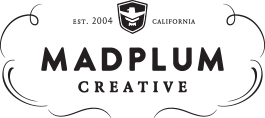The Beginners Cheat Sheet to Marketing Automation
Marketing campaigns and strategies can be difficult to manage and keep track of. Modern digital marketing techniques require near constant monitoring and analysis to be successful. They also need to be upgraded regularly to ensure you stay ahead of the competition. This can be a lot of work, which is why we recommend that you automate marketing wherever possible. Not all aspects of your marketing and sales can be automated, but using software to handle repetitive tasks that don’t require much human input can reduce the burden.
What is Marketing Automation?
Marketing automation is the process of using software to handle repetitive tasks that require little to no human input. The added benefit is machine learning and the ability to target marketing messages and communications to users at the right place, at the right time, without a human behind the computer screen hitting the send or publish button. Tasks can either be scheduled or triggered by website user actions. The software will allow you to automate time-consuming tasks and focus on marketing strategies that require human input and should be personalized. The automated system can handle many aspects of marketing and sales, including:
- Lead Generation
- Lead Nurturing
- Lead Assessment
- Customer Lifecycle Marketing
- Customer Retention
- ROI Measurement
- Email Marketing, etc.
Automation is the latest buzzword in the marketing industry but it needs to be executed carefully to gain good results. The initial setup of the system has a big impact on how well it will function in the future. Your automated system should nurture leads, keep your target audience engaged, and make sure that all campaigns run well.
What is Marketing Automation Software?
If you want to have a good automated marketing system in place, you need good software to handle the process. Most people don’t know that software programs perform differently on different platforms. Some programs work well in the enterprise environment with thousands, if not millions of leads and high-volume of marketing content. Some software programs are designed for smaller businesses and have no added frills to confuse your marketing team. The most popular platforms are:
- Infusionsoft
- HubSpot
- Eloqua
- iContact
- IBM Marketing Cloud
You should consult with a marketing professional and determine which platform will be suitable for your business.
Who Needs Marketing Automation?
It’s a common misconception that only large companies can benefit from marketing automation software and small or mid-sized business should invest their revenue more productively. Studies have shown that an increasing number of small to mid-sized businesses have started to adopt automation and benefit from it. This practice is particularly prevalent in the B2B industries that focus on manufacturing, software, business services, high-tech machinery, etc.
Many B2C industries have also started to automate their marketing. The strategy is particularly effective in healthcare, media, retail, financial services, and related fields. Marketing automation is customizable so you can implement a system that suits your business requirements and helps you reach your marketing goals.
Which Strategies are Usually Automated?
As we mentioned before, automation can’t handle all of your marketing processes because some require consistent human input. However, the automation software can handle the campaigns mentioned below easily, especially if you have a good foundation in place:
- Email Marketing – Automation software is often used to send emails to customers and associates on a schedule or in response to user triggers. For example, the system will send an automatic acknowledgment email when a customer purchases a product on your website. The system will also send newsletters, retargeting emails, and other such marketing material on a pre-set schedule.
- Campaign Management – Some aspects of campaign management can also be automated. For example, you can schedule content publication to maintain engagement over a certain period of time. If you intend to go on vacation for a couple of weeks, you can create content in advance and schedule the publication over the two weeks. This help keeps the audiences engaged so you don’t lose traction when you’re not working.
- LandingPages – Landing pages should be monitored closely to determine just how effective they are. They should also be responsive to visitors and show active engagement. Your automated system can analyze the sources of traffic, bounce rates, engagement, actions like purchase and registration, etc.
- Lead Management–Automated software is very useful in lead management. Once you’ve acquired a lead, you need to maintain it and keep your prospects engaged. Automated lead management can help you with that. The system will send regular emails with information, discounts, offers, etc, to your prospects. It will also retarget customers who have abandoned cart or haven’t interacted with your brand for a long time. This can be difficult to manage without an automated system in place.
- Social Marketing–Some aspects of social media marketing can be automated. Social media requires more personal attention because it relies on communication between the brand and customer. However, you can still schedule posts, collect information, generate leads, and target new audiences through an automated system.
- Marketing Analytics–No marketing campaign is successful without thorough analytics. Analytics will assess the performance of your campaigns and provide data that will help you improve them. Analytics is almost completely automated because everything from information collection to report generation is handled by the software. Some software programs will also summarize the reports to help you understand the information.
These are just some of the many ways in which your marketing campaign can be automated. In fact, many businesses combine marketing and sales automation to create an efficient system that delivers significantly hight return on investment.
How Do You Determine that Marketing Automation is Right For You?
Automation requires effort, money, and time to set up, which is why many small businesses try to avoid it and invest their money elsewhere. You also need to have a good foundation in place to ensure it works well for your business. Here are some signs that indicate your business is ready for marketing automation:
- Your business and current marketing strategies generate new and qualified leads at a steady pace.
- Your sales team can’t handle all of the new leads well and you’re losing prospects because your system is overwhelmed.
- You have an efficient lead nurturing strategy that you can build into an automated system.
- You track your leads and their behavior at every point of contact and know how to respond.
These signs are an indication that your business can benefit from a good leads marketing software. You should consider hiring a professional to assess your system and determine if it’s ready for the automation process. You should also consult with employees that handle marketing and sales before you make the change.
Things You Should Keep In Mind
You should keep the points mentioned below in mind while you consider marketing automation:
- It’s not just for email marketing. This assumption severely limits the potential of any automated marketing software.
- It’s not designed to spam prospects with content and marketing. You need to build trust and a strong relationship with your prospects.
- It still requires effort. You can’t set and forget automation and expect consistent results. You will still need to work on content, analyze data, monitor processes, etc.
A great automated system will deliver good ROI, reduce the burden on your marketing team, and ensure no leads are neglected. If you’re still uncertain whether your company needs this system, contact us today to analyze your business and provide solutions.
Posted In: Blog




